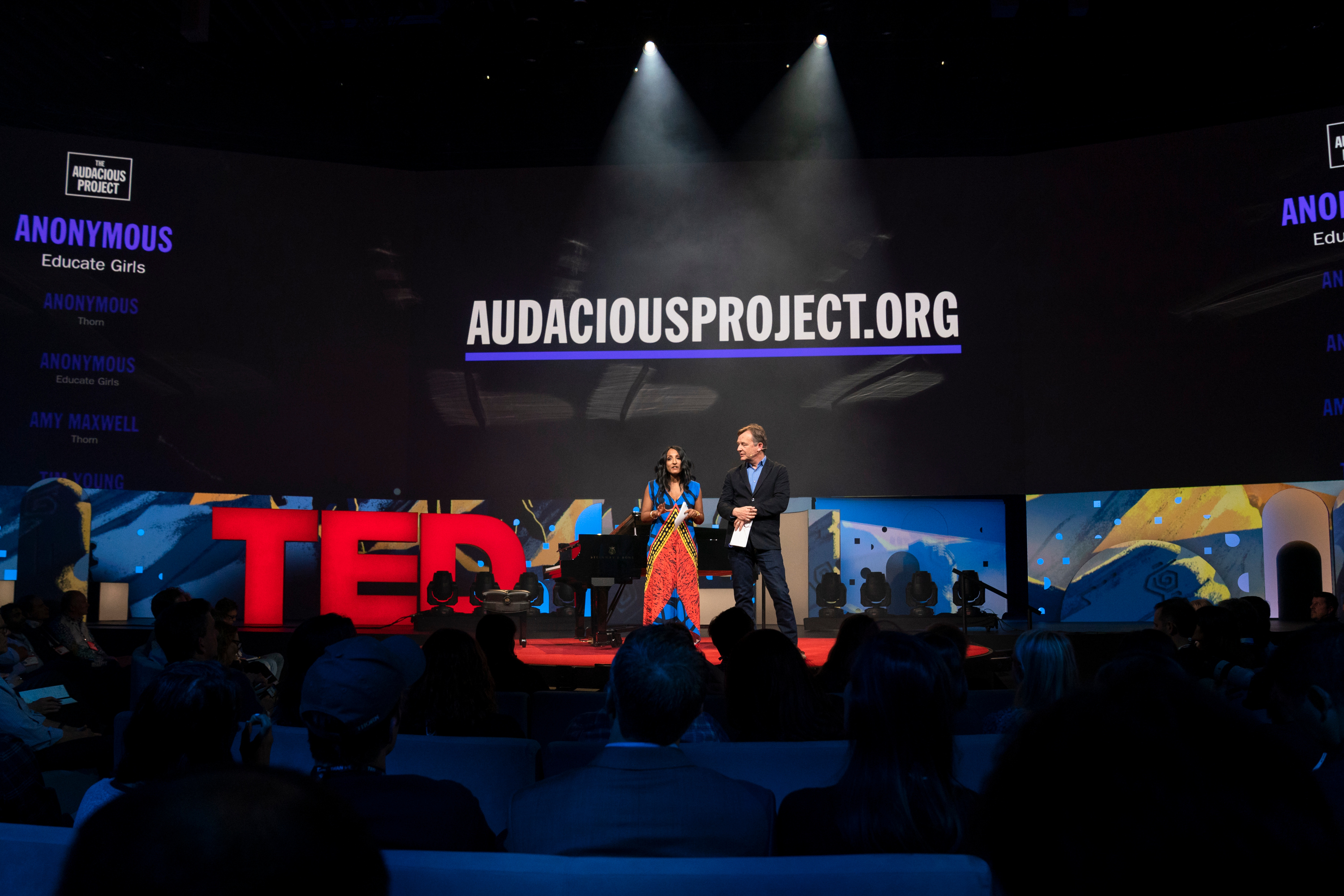
Executive Director of the Audacious Project Anna Verghese and Head of TED Chris Anderson help unveil eight big, bold projects that are receiving the support of The Audacious Project in 2019. They speak at TED2019: Bigger Than Us, on April 16, 2019 in Vancouver, BC, Canada. (Photo: Ryan Lash / TED)
In the program guide for Session 4 of TED2019, “Audacity,” a group of eight mysterious figures stands silhouetted in black. That’s because the speakers in this session were a total surprise — to those in TED audience and to those tuning in via Twitter Live from around the world. These eight speakers all have big, bold ideas for global change — and they’re representing eight projects that are receiving the support of The Audacious Project in 2019. Over the next three to six years, these ideas have the potential to change broken systems and impact millions of lives in a positive way. And each needs your support. After each idea, find out how you can get involved.
The event: Session 4 of TED2019, hosted by Chris Anderson, Head of TED, and Anna Verghese, Executive Director of the Audacious Project
When and where: Tuesday, April 16, 2019, 5pm, at the Vancouver Convention Centre in Vancouver, BC
Speakers: Phillip Atiba Goff, Joanne Chory, Claudia Miner, David Baker, Safeena Husain and Julie Cordua, with special videos on ideas from Ellen Agler and Mark Tercek
Music: Emeli Sandé singing three beautiful songs: “You Are Not Alone,” “Extraordinary Being” and “Read All About It Part III”
The talks in brief:
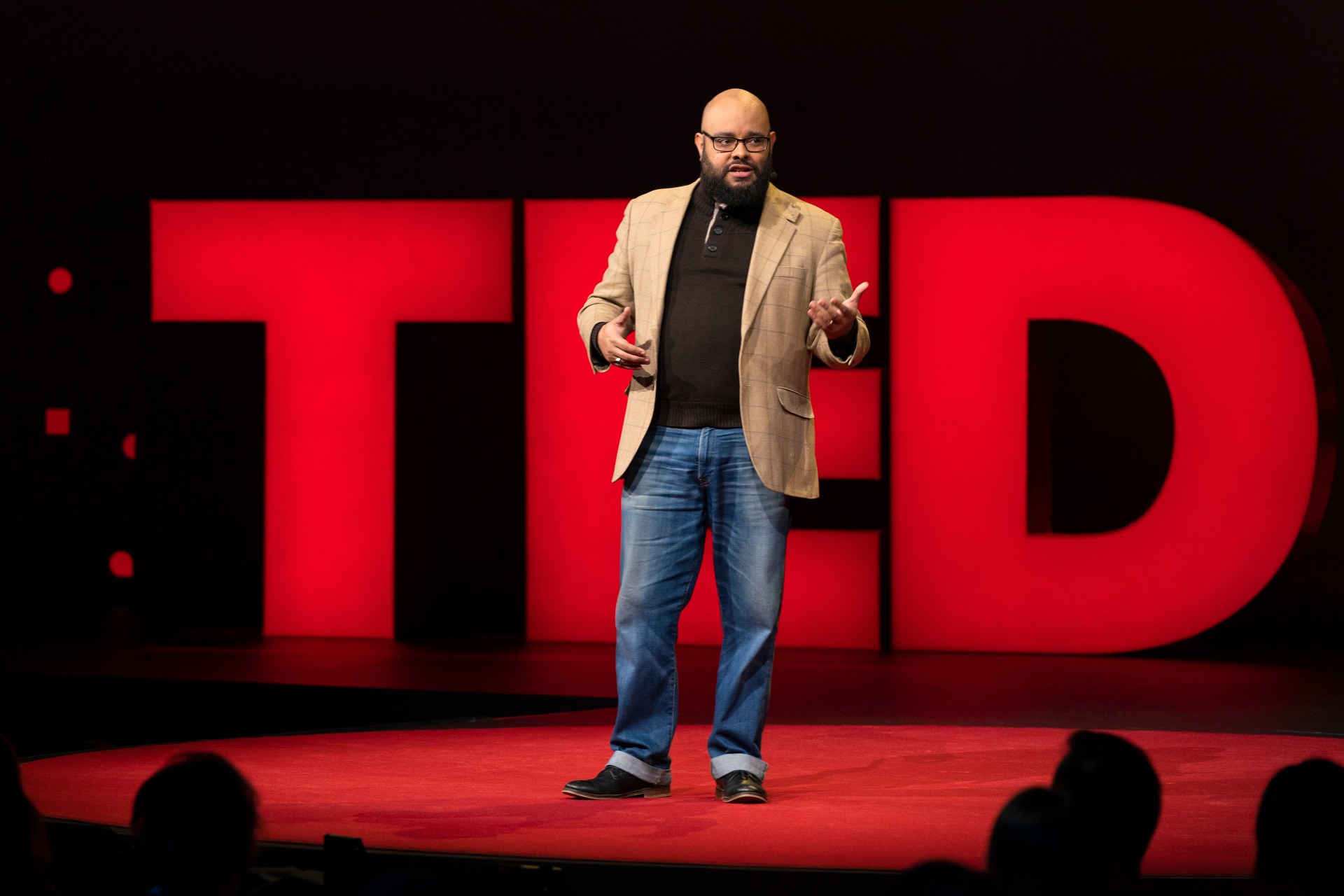
“When we change the definition of racism from attitudes to behaviors, we transform that problem from impossible to solvable,” says Phillip Atiba Goff, president of the Center for Policing Equity. He speaks at TED2019: Bigger Than Us, on April 16, 2019 in Vancouver, BC, Canada. (Photo: Ryan Lash / TED)
Phillip Atiba Goff, behavioral scientist and president of the Center for Policing Equity
- Big idea: In the US, Black people are two to four times more likely than white people to be targets of police force. The problem, says Phillip Atiba Goff, is that we think of racism as contaminated hearts and minds — when racism is really about behaviors. “When we change the definition of racism from attitudes to behaviors, we transform that problem from impossible to solvable,” says Goff. “Because you can measure behaviors.” Like any other organization, police departments can set goals for more equitable behavior — and hold themselves accountable to reaching them.
- The Audacious project: Goff and his team at the Center for Policing Equity work with police departments and communities, city by city, to collect data on police behavior and set goals to make it more fair. They’re building a CompStat for Justice — a data system that shows police departments where they’re going, who they’re arresting and much more. The data that CPE collects can help police chiefs develop strategies for changing their department’s behaviors, and to date, they’ve seen staggering results. So far, CPE has delivered products to 25 cities, leading to an average of 33 percent fewer force incidents. Over the next five years, the Center for Policing Equity hope to bring their tools to police departments that collectively serve 100 million people across the US, effectively reaching one in three Americans.
- Quote of the talk: “I’ve experienced the fear of seeing an officer unclip their gun, and the panic of realizing someone might mistake my 13-year-old godson as old enough to be a threat. So when a chief — or a pastor or an imam or a mother — calls me after an officer shoots another unarmed Black child, I understand the pain in their voice.” See what you can do for this idea »
Joanne Chory, plant biologist and director of the Plant Biology Laboratory at the Salk Institute for Biological Studies
- Big idea: To most of us, CO2 is a villain, the greenhouse gas responsible for rising global temperatures. But to Joanne Chory, one of the world’s most prominent plant biologists, CO2 is simply the thing that plants take in during photosynthesis, and convert into oxygen and sugars. For millions of years, plants have kept Earth’s CO2 levels in check — and Chory believes they can do it now, even as human beings release more CO2 into the atmosphere than ever before. Plants could help us fight climate change.
- The Audacious project: Chory’s team at the Salk Institute wants to train plants to sequester carbon better, and for longer. They’re developing the science to create plants with more of a natural polymer called suberin in their roots, as this cork-like substance works as a stable carbon-storage device. They’re also looking to grow plants with deeper, more robust root systems, to really amplify their sequestering ability. Salk will start by creating these traits in model plants, and then will be able to transfer them to major crop plants like corn, soybean and cotton. If these superstar plants could occupy fields around the world, they could hold massive amounts of carbon in the ground, to achieve a 20 to 46 percent reduction of excess CO2 every year.
- Quote of the talk: “I’ve come to appreciate plants as the amazing machines they are — they literally suck CO2 out of the air. They’ve been doing it for 500 million years, and they’re really good it!” See what you can do for this idea »
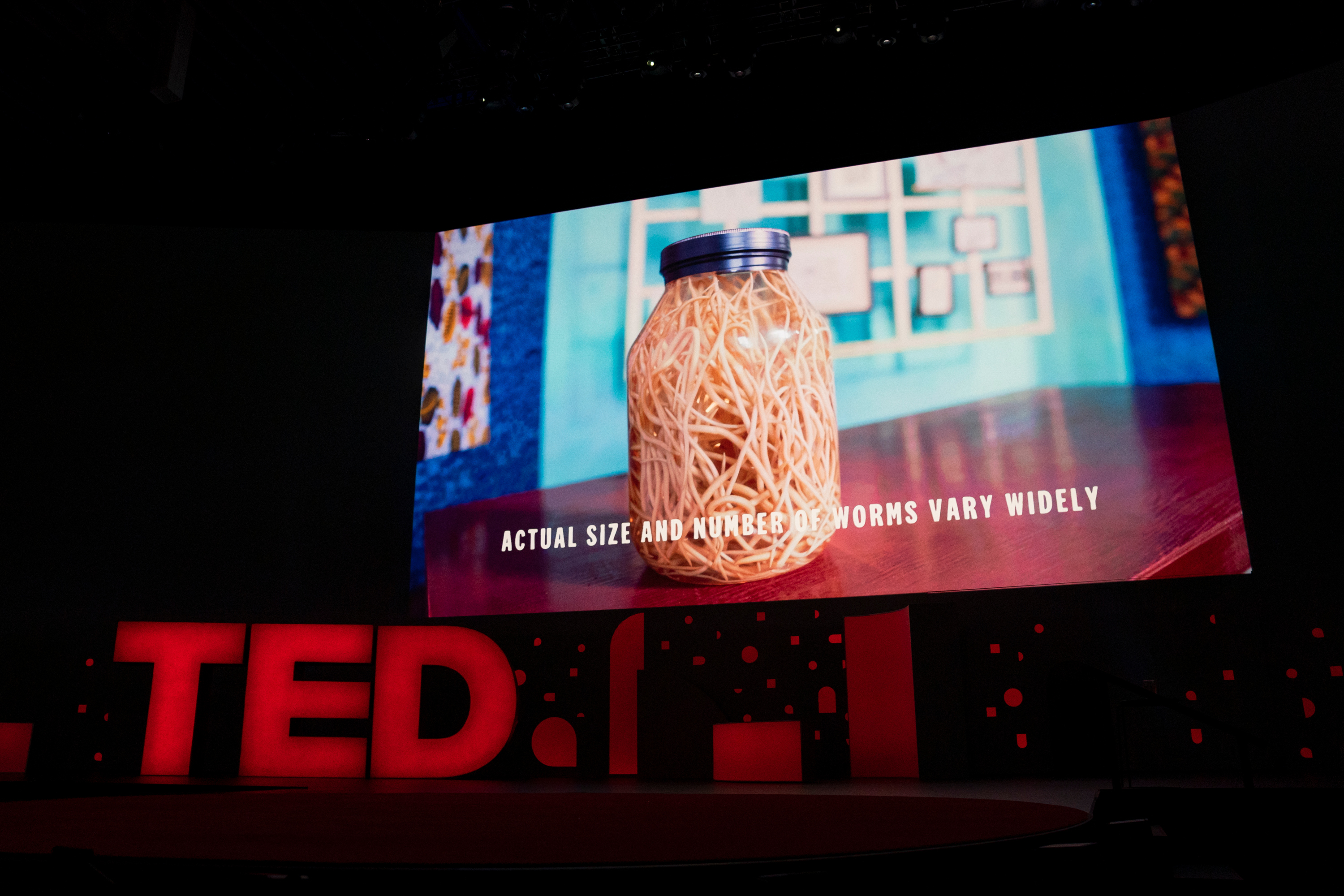
In this jar, there are 200 roundworms — because that’s the number that might be found in the belly of one child with an intestinal worm infection. Ellen Agler, the CEO of the END Fund, has a big plan to end disease from worms. (Photo: Bret Hartman / TED)
Ellen Agler, public health leader, CEO of the END Fund and author of Under the Big Tree
- Big idea: Parasitic worms have been around for thousands of years, causing disease and limiting human potential. Today, more than 1.5 billion people in the world are at risk for worms, 600 million of them in Africa. And yet worms are very easy to treat — it takes just one to three pills, given once or twice a year. Ellen Agler and her team at the END Fund know that governments across Africa want to gain traction on this problem. By amplifying work already in progress, the END Fund thinks we can be the generation that ends disease from worm infections for good.
- The Audacious Project: Over the next six years, the END Fund will deliver deworming treatment to 100 million people. But that’s really just the start. The END Fund looks at the problem of delivering deworming treatments through a systems lens, bringing together the right partners, lowering the cost of treatment, focusing on prevention, helping with monitoring and evaluation, and treating overlooked people, like young children and women of reproductive age. Every step of the way, the END Fund will support governments and nurture local leadership, creating a roadmap toward local ownership of deworming programs.
- Quote of the video: “If the World Health Organization’s 2020 goals for worm control are met, African economies would see a $35 billion boost in productivity within ten years.” See what you can do for this idea »
Claudia Miner, historian, education entrepreneur and executive director of Waterford’s UPSTART project
- Big idea: Fifty years ago, the United States achieved a watershed moment when it started bringing early education to low-income children through Head Start. Today, however, there are still 2.2 million children in the US — half of all 4-year-olds — who don’t have access to an early education program, because they live too far from one, speak another language or face a financial or logistical hardship. On day one of kindergarten, these children may already be years behind their peers. And they may not ever catch up.
- The Audacious project: At Waterford.org, Claudia Miner and her team have created a kindergarten readiness project called UPSTART that bridges these access gaps. In just 15–20 minutes a day, children without access to in-person early education engage with personalized software that lets them learn at their own pace, from home. This isn’t mindless screen time — UPSTART lessons are educational and engaging, and the program coaches parents to take on the role of their children’s first teacher. UPSTART has a 90 percent completion rate, and a longitudinal study has shown that the gains students make last well into third and fourth grade. UPSTART has been piloted in 15 states so far, and several have opted to fund it because it’s been so effective. Over the next five years, Waterford will pilot UPSTART in all 50 states, serving a quarter of a million children, and make deep inroads toward state funding.
- Quote of the talk: “Our Audacious idea is to make UPSTART available across the country — not to replace anything. We want to serve children who otherwise would not have access to early education.” See what you can do for this idea »
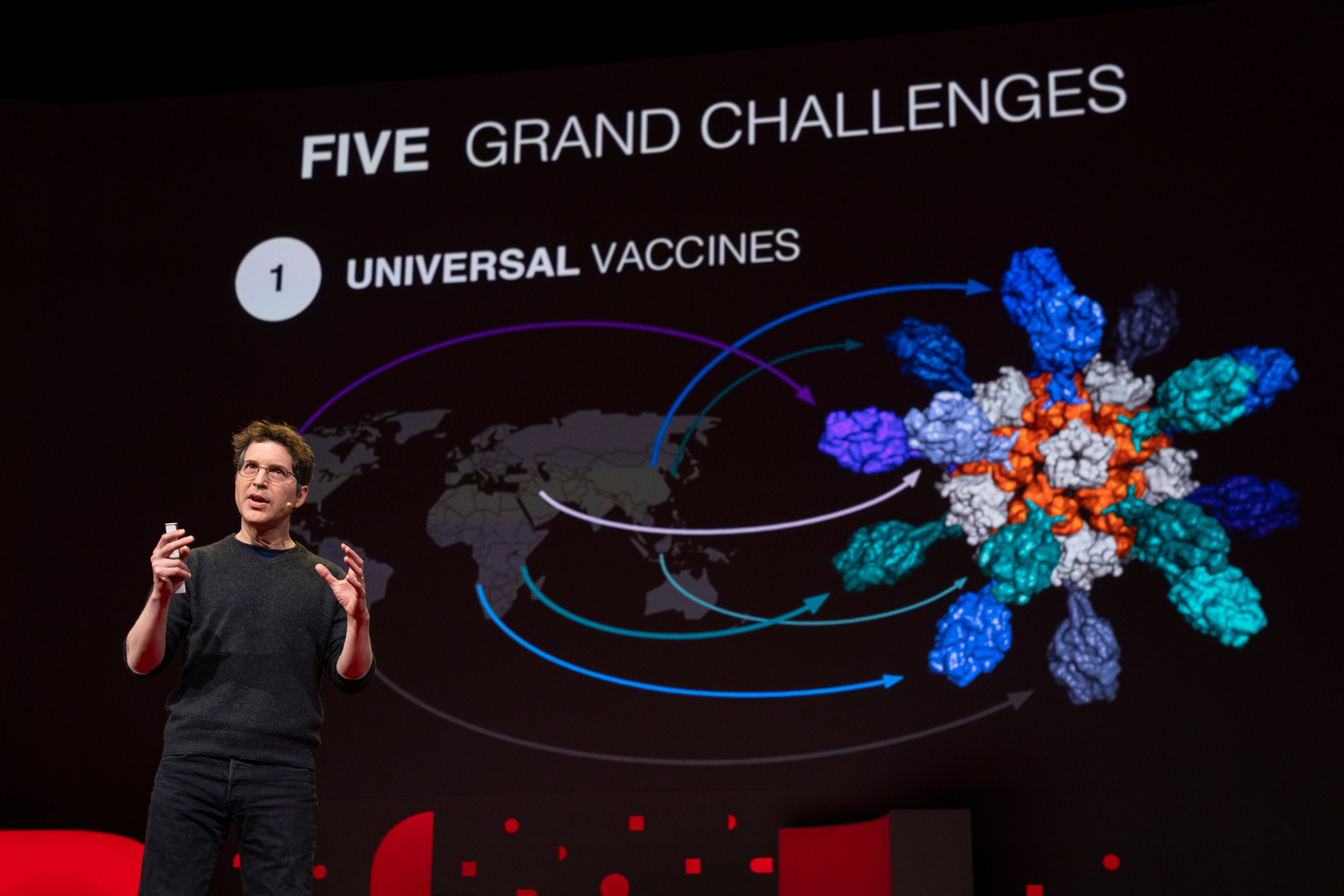
At the Institute for Protein Design, biochemist David Baker and his team are working on five grand challenges: including developing a universal flu vaccine that you would only need to take once. (Photo: Bret Hartman / TED)
David Baker, professor of biochemistry and director of the Institute for Protein Design at the University of Washington School of Medicine
- Big idea: “Proteins carry out all of the essential functions in our bodies,” says David Baker. These miniature machines digest our food, contract our muscles, fire our neurons and so, so much more. But proteins are also tricky. They’re built of long strings of amino acids that “fold up” into specific shapes that allow them to do their job. And because scientists haven’t been able to crack the code of how proteins fold, we’ve only been able to make small modifications to proteins that already exist. Being able to create new proteins would open up incredible possibility.
- The Audacious project: Baker’s research team at the Institute for Protein Design has developed the ability to design new proteins. And they want to launch the protein design revolution. Their goal is to become the Bell Laboratories of this new field, doubling their faculty and attracting top talent to train the next generation of scientists. Specifically, IPD will work toward five grand challenges: (1) universal vaccines for flu, HIV and cancer, (2) advanced medications for chronic pain, (3) protein nano-containers that bring medicines to specific cells, (4) smart protein therapeutics that recognize unhealthy cells, and (5) next-generation nanoengineering for solar energy capture. They stand to change the world of medicine and so much more.
- Quote of the talk: “Humans have only been able to harness the power of proteins by making very small changes to the amino acid sequences of the proteins we’ve found in nature. This is similar to the process that our Stone Age ancestors used to make tools and other implements from the sticks and stones they found around them.” See what you can do for this idea »
Mark Tercek, global environmental leader and CEO of The Nature Conservancy
- Big idea: Island and coastal nations need to protect their waters in order for our oceans, globally, to stay healthy. But these countries hold high debt loads and often aren’t able to prioritize ocean protection over other needs. Mark Tercek and his team at The Nature Conservancy see a way to solve both problems at once. Their idea is to buy a nation’s debt at a discount and restructure it to give them lower debt payments, in exchange for the government’s commitment to protect 30 percent of its coastal areas.
- How: The Nature Conservancy has been a pioneer in debt-for-nature conservation, working since 2001 to negotiate deals like this for the protection of tropical forests. In 2016, they tried this approach in the Seychelles, restructuring $22 million in debt in exchange for the protection of 400,000 square kilometers of ocean — an area the size of Germany. It’s been incredibly successful, but the deal took years to complete. Now The Nature Conservancy plans to build a team that can close these deals much more quickly. Over the next five years, they will negotiate deals in 20 island and coastal nations, and together create more than 4 million square kilometers of marine-protected areas.
- Quote of the video: “If you refinance your house to take advantage of a better interest rate, maybe you use the savings to insulate your attic. That’s what Blue Bonds for Conservation do, for entire coastal countries.” See what you can do for this idea »
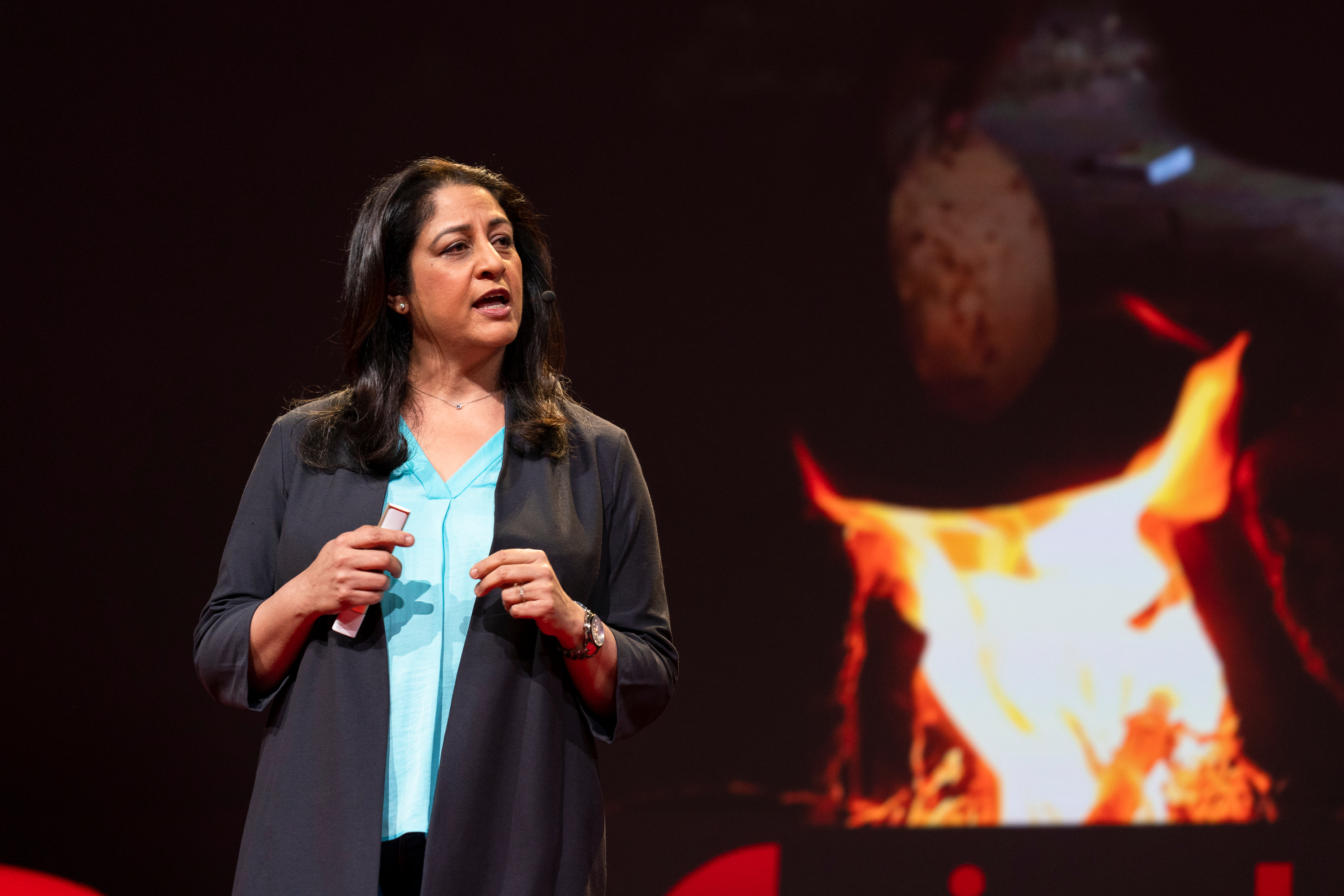
Safeena Husain, executive director of Educate Girls, plans to enroll a staggering 1.6 million girls in school in the next five years. She speaks at TED2019: Bigger Than Us, on April 16, 2019 in Vancouver, BC, Canada. (Photo: Bret Hartman / TED)
Safeena Husain, social entrepreneur and executive director of Educate Girls
- Big idea: Working in India, Safeena Husain has met girls named Aa chuki (“not wanted”), Antim Bala (“the last girl”) because that’s what her family hoped she’d be, and Naraz nath (“angry”) because her community was so angry she was born a girl. It’s not just poverty and cultural norms that bar girls from receiving an education: it’s collective mindsets. Even though girls’ education has been shown to have a long list of positive effects — it impacts nine of the UN’s 17 sustainable development goals –many girls in the world are still barred from receiving an education. India is home to one of the largest populations of out-of-school girls, with more than 4.1 million girls outside the classroom.
- The Audacious project: Husain and her team at Educate Girls work in remote regions in India, going door-to-door to find all out-of-school girls. They do individual counseling with parents, and hold neighborhood and village meetings to change those mindsets. Their Team Balika (“team for the girl”) volunteers use an app to collect data — and their predictive model reveals that just five percent of India’s villages are home to 40 percent of the out-of-school girls. Their plan is to work specifically in these 35,000 villages for amplified impact. By doing this, they will enroll a staggering 1.6 million girls in school in the next five years. And they will work to keep them there.
- Quote of the talk: “I believe that girls’ education is the closest thing we have to a silver bullet to help solve some of the world’s most difficult problems.” See what you can do for this idea »
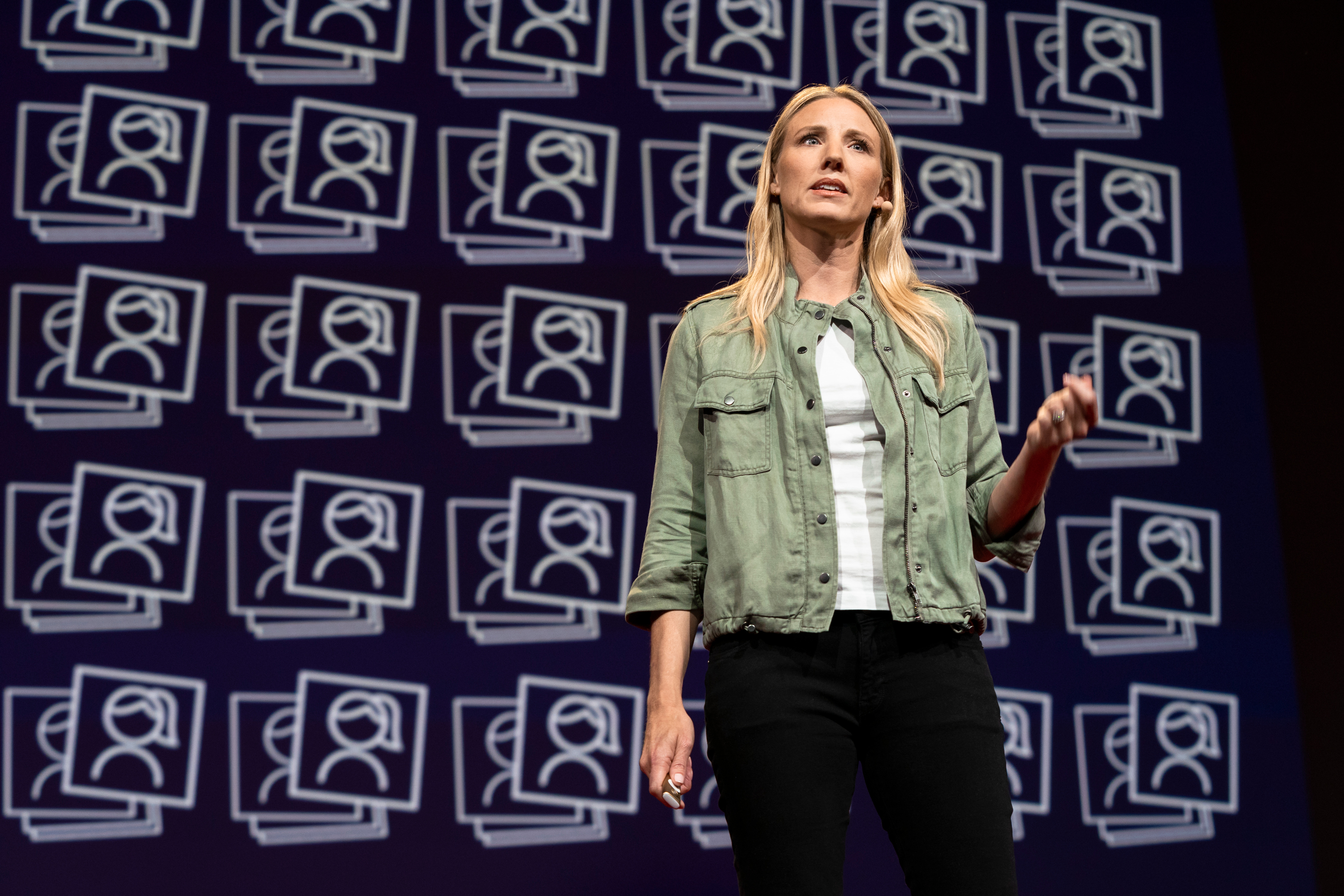
“This Audacious project is a declaration of war against one of humanity’s darkest evils,” says Julie Cordua, social entrepreneur and CEO of Thorn. She speaks at TED2019: Bigger Than Us, on April 16, 2019 in Vancouver, BC, Canada. (Photo: Ryan Lash / TED)
Julia Cordua, social entrepreneur and CEO of Thorn
- Big idea: Thorn works on a problem that isn’t easy to talk about: the sexual abuse of children in images and videos on the internet. This is clearly a human problem. But it’s also, says Julie Cordua, a technology problem. In the late 1980s, child pornography was nearly eliminated — because of tighter laws, it was too risky for abusers to trade it through the mail. But with the advent of the internet, both supply and demand skyrocketed. In 2018, there were 45 million reports of child sexual abuse content in the US alone — twice the number of reports of the year before. “Law enforcement focuses on just their jurisdiction. Companies look at just their platform,” says Cordua. “Whatever they learn along the way is rarely shared.” A unified response is necessary.
- The Audacious project: Thorn is building technology to connect the dots between the law enforcement agencies, NGOs and tech companies who are the responders in this invisible crisis. Their tools collect the hashes of known sexual abuse content — essentially, the digital fingerprint of each file — and catalog it. As they collect more and more hashes of known content, it will allow law enforcement to spot new material quickly, and swing into action to try to find the child being abused. And the system will only get smarter — when a company sees a known hash posted, for example, they can scrub that user’s account and potentially discover hashes for other unknown material. Thorn’s goal is to be able to identify new material in seconds — which will open the door to eliminating this content from the internet altogether.
- Quote of the talk: “The abusers win when we look at one piece of the puzzle at a time. … This Audacious project is a declaration of war against one of humanity’s darkest evils.” See what you can do for this idea »
And with these eight projects revealed, it’s time for the audience to get involved. Each project has a significant gap between what’s been committed to it so far and what’s needed to complete it. Anderson and Verghese called on the audience at the TED Conference and watching online to donate to the projects that most moved them, and pledges started rolling in, scrolling on the screens on stage.
Together, these eight projects will require $567 million in funding. And between presentations to donor groups earlier in the year and pledges made tonight, they have now raised $283,561,215. Each project is at least halfway funded, and will able to launch. Now … to watch them in action.